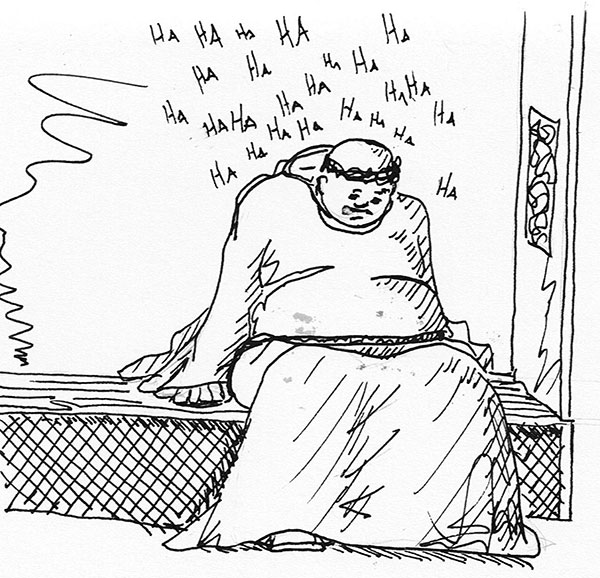She laid a finger against her nose and frowned: then she continued:
“But still and all he kept on saying that before the summer was over he’d go out for a drive one fine day just to see the old house again where we were all born down in Irishtown and take me and Nannie with him. If we could only get one of them new-fangled carriages that makes no noise that Father O’Rourke told him about, them with the rheumatic wheels, for the day cheap—he said, at Johnny Rush’s over the way there and drive out the three of us together of a Sunday evening. He had his mind set on that…. Poor James!”
“The Lord have mercy on his soul!” said my aunt.
Eliza took out her handkerchief and wiped her eyes with it. Then she put it back again in her pocket and gazed into the empty grate for some time without speaking.
“He was too scrupulous always,” she said. “The duties of the priesthood was too much for him. And then his life was, you might say, crossed.”
“Yes,” said my aunt. “He was a disappointed man. You could see that.”
A silence took possession of the little room and, under cover of it, I approached the table and tasted my sherry and then returned quietly to my chair in the corner. Eliza seemed to have fallen into a deep revery. We waited respectfully for her to break the silence: and after a long pause she said slowly:
“It was that chalice he broke…. That was the beginning of it. Of course, they say it was all right, that it contained nothing, I mean. But still…. They say it was the boy’s fault. But poor James was so nervous, God be merciful to him!”
“And was that it?” said my aunt. “I heard something….”
Eliza nodded.
“That affected his mind,” she said. “After that he began to mope by himself, talking to no one and wandering about by himself. So one night he was wanted for to go on a call and they couldn’t find him anywhere. They looked high up and low down; and still they couldn’t see a sight of him anywhere. So then the clerk suggested to try the chapel. So then they got the keys and opened the chapel and the clerk and Father O’Rourke and another priest that was there brought in a light for to look for him…. And what do you think but there he was, sitting up by himself in the dark in his confession-box, wide-awake and laughing-like softly to himself?”
She stopped suddenly as if to listen. I too listened; but there was no sound in the house: and I knew that the old priest was lying still in his coffin as we had seen him, solemn and truculent in death, an idle chalice on his breast.
Eliza resumed:
“Wide-awake and laughing-like to himself…. So then, of course, when they saw that, that made them think that there was something gone wrong with him….”

